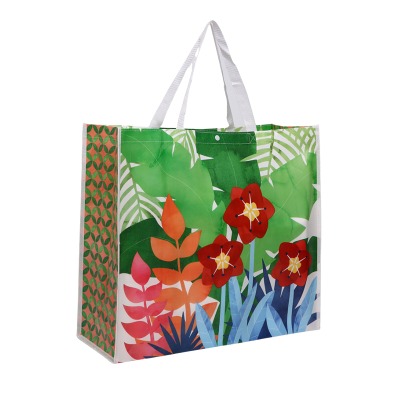Inquiry
Inquiry
In recent years, environmental concerns have prompted individuals and businesses alike to seek more sustainable alternatives to traditional plastic products. Among these alternatives, the non woven bag has gained attention as a reusable and environmentally friendly option for packaging and carrying goods. But what exactly makes these bags a greener choice?
A non woven bag is made from polypropylene, a type of thermoplastic polymer that is transformed into a fabric-like material through a process called spunbond technology. Unlike woven materials, non woven fabrics are bonded together through heat and pressure rather than weaving threads. This method results in a strong yet lightweight material that is easy to produce and can be shaped into various forms.
One of the key reasons non woven bags are considered eco-friendly is their reusability. Unlike single-use plastic bags, which are often discarded after one use, a non woven bag is designed to be durable and long-lasting. With proper care, it can be reused many times for shopping, storage, or promotional purposes. The ability to reuse these bags reduces the number of disposable plastic bags that end up in landfills or the ocean.
Another eco-friendly aspect of non woven bags is their recyclability. Polypropylene, the main material used in their production, is recyclable in many regions. When a non woven bag reaches the end of its useful life, it can be processed and transformed into new plastic products, thereby minimizing waste. Although recycling infrastructure varies by location, the potential for material recovery adds to the sustainability profile of these bags.

The manufacturing process for non woven bags also tends to have a smaller environmental footprint compared to traditional plastic bags. Producing woven bags involves more labor and energy due to the weaving process, while paper bags require significant water and resource use. In contrast, non woven bags can be produced efficiently with relatively low emissions, making them a practical alternative from a production standpoint.
Non woven bags are also favored in eco-conscious circles because they often replace single-use options at retail stores and events. Businesses can use them for promotions or packaging while encouraging customers to reduce their reliance on disposable plastics. When consumers choose a non woven bag over a conventional plastic bag, they are making a choice that supports waste reduction efforts.
From a branding perspective, the material of a non woven bag allows for clear printing of logos and messages, making them a reusable marketing tool. This encourages longer use, as recipients are more likely to hold onto and reuse a bag that is both functional and visually appealing. While this may not directly reduce environmental harm, it contributes to the longevity and utility of the bag.
The non woven bag is considered eco-friendly due to its durability, reusability, recyclability, and more efficient production process. Though no product is without impact, the use of non woven bags presents a step toward more responsible consumption and reduced plastic waste. For individuals, businesses, and organizations aiming to reduce their environmental footprint, adopting non woven bags can be a practical and sustainable solution.
Join Us
For 12 years, we have focused on the production and manufacturing of handbags, constantly innovating and researching.
Seed Message
Megalith